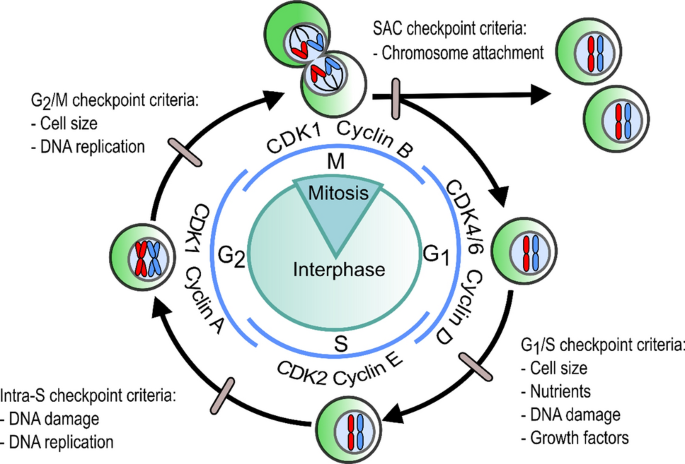-

Cell Cycle (Basic)
I. Introduction II. Interphase A. G1 phase B. S phase C. G2 phase III. Mitotic Phase IV. Conclusion
-

Cell cycle regulatory proteins
I. Introduction II. Cyclin-dependent kinases (CDKs) III. Cyclin-dependent kinase inhibitors (CKIs) IV. Retinoblastoma protein (Rb) V. Tumor protein p53 (p53) VI. Conclusion
-

Cell Cycle and Its Regulation
The cell cycle is a fundamental process that is essential for the growth, development, and maintenance of all living organisms. It is a series of events that a cell undergoes to replicate and divide into two daughter cells. The cell cycle can be divided into two main stages: interphase and mitosis. Interphase is the period…
-

Mitosis: Cell Division
Mitosis cell division is essential for the growth and repair of an organism. Mitosis involves four main stages: prophase, metaphase, anaphase, and telophase, followed by cytokinesis, the final stage where the cell physically divides into two identical daughter cells. The proper execution of mitosis is critical for the accurate replication and segregation of DNA and…
Categories
- Anatomy (9)
- Animal Form and Functions (38)
- Animal Physiology (65)
- Biochemistry (33)
- Biophysics (25)
- Biotechnology (52)
- Botany (42)
- Plant morphology (6)
- Plant Physiology (26)
- Cell Biology (107)
- Cell Cycle (14)
- Cell Signaling (21)
- Chemistry (9)
- Developmental Biology (36)
- Fertilization (13)
- Ecology (5)
- Embryology (17)
- Endocrinology (10)
- Environmental biology (3)
- Genetics (59)
- DNA (27)
- Inheritance (13)
- Histology (3)
- Hormone (3)
- Immunology (29)
- life science (76)
- Material science (8)
- Microbiology (18)
- Virus (8)
- Microscopy (18)
- Molecular Biology (113)
- parasitology (6)
- Physics (3)
- Physiology (11)
- Plant biology (26)
- Uncategorized (7)
- Zoology (112)
- Classification (6)
- Invertebrate (7)




